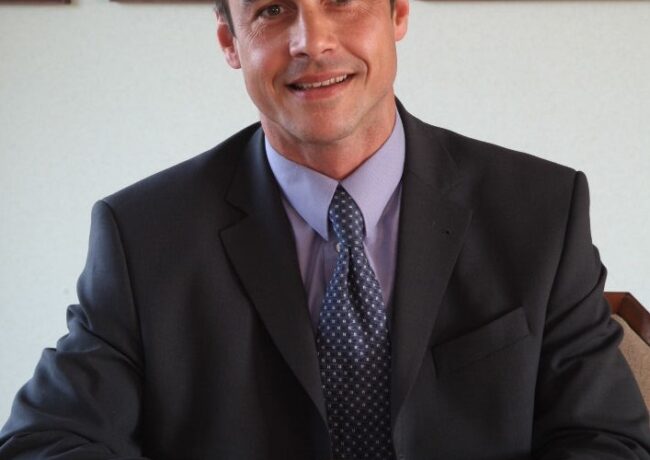Nicholson: Steady as she goes for Pochin
After 50 years as a publicly listed company, 2014 saw Cheshire-based developer and contractor Pochin's founding family take control of the business once again under the leadership of chief executive Jim Nicholson.
Six months on from the delisting and following the announcement of a £15m credit facility agreement with the Royal Bank of Scotland, Place North West met with Nicholson to discuss the next phase for the regional family business.
Nicholson, who is the grandson of founder Cedric Pochin and director of Pochin Property, began the process to take the company private in mid-December 2013, as part of the Cedric Pochin Concert Party which included his mother and non-executive director Sylvia Nicholson.
His bid was confirmed as successful in July 2014, and he assumed the role of chief executive.
When asked about why the decision was made to delist the business after 50 years, Nicholson pointed to the impact of the recession on the construction industry as a key motivator: "The business needed to change, but the market was difficult, and we needed to lift the pressures that the listing gave us. The city and the stock market expects more, and although we delivered solidly that was still at loggerheads with city expectations of a consistent increase on investment.
"We weren't delivering to shareholders, so the right thing was a delisting to put us in a position for a steady recovery."
The business's base in the North West remains at the centre of its identity and Nicholson's strategy. He said: "The focus now is on going back to our roots and what we're good at, which is North West and North Wales construction projects. The construction business is very healthy, with a £70m to £80m turnover sitting alongside the development and investment activity we have going on.
"This regional emphasis means we don't have to worry about what is going on in a distant geography which previously had a negative impact. As part of the delisting and streamlining we got rid of some cumbersome legacy contracts, and our business model for the next six months is now to just focus on delivering quality projects on time."
Previously, Pochin was separated into two distinctly separate operations; the property division headed up by Nicholson, and the construction arm led by Jonathan Pochin. When asked about the relationship between the two areas under the new management structure, Nicholson said: "We're now working as a matrix rather than as two parallel businesses. We've stripped out the overheads, restructured, and moved around some senior people."
Jonathan Pochin remains the director of Pochin Construction, but has now also been appointed to the company's main board. Eddie Bredenhann, Pochin's business development and marketing manager for 16 years, has also moved into a directorship.
In Pochin Property, director Bob Nicholson is moving into a leadership role, replacing Brian Reay who is leaving the company after 14 years to pursue personal business interests.
Nicholson acknowledged that despite the economic upturn, the construction industry was still difficult, and pointed to problems in the current public sector procurement process as a reason why many contractors struggled to get key contracts.
"The OJEU process is biased against smaller businesses. It's based on excluding people quickly, which means it is prejudiced against businesses with a regional focus.
"We can prove that we have done several projects well, but not across a national geographical area, which means we are discounted despite the quality of our work.
"There isn't a fair opportunity to be included in public sector procurement which would give companies the opportunity to do these projects and get the experience they need.
"We're not being greedy, we're not targeting a glut of work, but we're good at delivering reliably and should be considered for these schemes."
In terms of the wider business, Nicholson's focus was on rewarding the loyalty of the many who had supporting the delisting and his decision to move into the chief executive role.
"We have a responsibility to the company, its history, our employees and the bankers that are supporting us.
"Our vision is not to overstretch ourselves, it's a plan for a solid and sustainable recovery. The best thing we can do is try to take advantage of the pendulum swings in the economy, which is still providing uncertainty at the moment.
"Ultimately, its 'steady she goes', to maintain and continue the good regional reputation we've earnt in the market."




